Category: Features
-
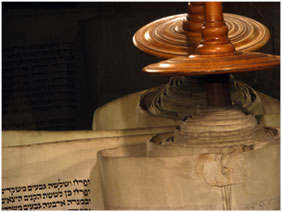
Sunday School Lesson 44: Ezekiel 43-44, 47
Ezekiel’s book goes back and forth between telling of the literal return from Babylon to Jerusalem in ways that we can also read to refer to the last days to speaking directly of the last days. (But when he thinks of the last days, is he thinking of the same event or events that we…
-
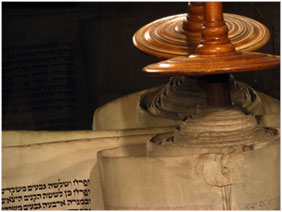
Lesson 43: Ezekiel 18, 34, and 37
Chronologically we turn backwards at this point. Jeremiah was the prophet in 597 B.C. when Jerusalem was finally captured and destroyed by Nebuchadnezzar and its people were carried into Babylon. Like Lehi, Ezekiel was a contemporary of Jeremiah, but Ezekiel did not prophesy with them. Instead, like Daniel, Ezekiel was with the large group from…
-
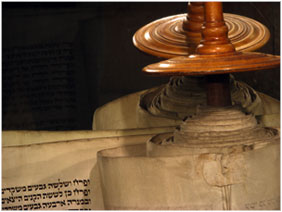
Sunday School Lesson 42: Jeremiah 16, 23, 29, 31
As you read Jeremiah, you should do what the lesson materials for Isaiah suggested: ask how those to whom Jeremiah was speaking would have understood his prophecies, how those in the Book of Mormon (who had a record of part of his prophecies with them) would have understood them, how the members of the Church…
-

Sunday School Lesson 41: Jeremiah 1-2, 15, 20, 26, 36-38
Historical Background Like Isaiah, the book of Jeremiah is a collection of prophecies edited into a book after the fact rather than one, extended prophecy. It describes itself as a history rather than as a prophecy, though obviously it contains a number of prophecies. But the word history doesn’t mean the same for ancient Israel…
-
How to Read the Bible
Last month I did a series of posts on religion and science; the theme for November is interpreting the scriptures. (Since November basically ends when Thanksgiving hits, I’m borrowing a week from October.) First up: a few thoughts on Steven McKenzie’s book How to Read the Bible: History, Literature, and Prophecy — Why Modern Readers…
-

Sunday School Lesson 40: Isaiah 54-56, 63-65
As was true of the preceding several chapters, such as chapters 52-53, it is easier in these chapters for us to see their symbolic meaning than it is to see it in many of the early chapters in Isaiah. Nevertheless, I think it helps, even in a case like this, to begin by understanding the…
-

Sunday School Lesson 39: Isaiah 50-53
These chapters are among the most beautiful in the Bible; they are an important part of Western literary culture, even for non-believers. Many scholars see the chapters as part of larger dramatic structure, a larger dramatic script as it were. In contemporary scripts the various parts would be marked clearly: “Chorus,” “Yahweh,” “Earth,” “Heavens,” “Armies,”…
-
Why would our Heavenly Father do that to anyone?
It’s a vexing question, asked frequently and nearly always plaintively. President Boyd K. Packer asked it rhetorically this week, supporting and strongly affirming the church’s stance on sexuality and marriage. He stated: We teach the standard of moral conduct that will protect us from Satan’s many substitutes and counterfeits for marriage. We must understand that…
-
Sunday Afternoon in a Nutshell
T&S does not run open posts — we figure readers ought to be listening to Conference rather than yakking online during the sessions. Instead, we do post-session summaries and posts looking at individual talks. Comments welcome. President Uchtdorf conducted the concluding Sunday afternoon session, featuring talks by Elder Perry, Elder Bednar, Elder Lawrence, three more…
-
Sunday Morning in a Nutshell
President Uchtdorf conducted the Sunday morning session, featuring talks by President Eyring, Elder Packer, Elder Jensen, Sister Cook, Elder Oaks, and President Monson. Direct quotations (based on my notes) are given in quotes; phrases without quotes are my summary of the remarks given. Parenthetical comments in italics are my own comments.
-
Notes on the Priesthood Session
My summary and reaction to the Priesthood Session of General Conference: Elder Nelson: A very nice complement to President Monson’s remarks of the morning session. Elder Nelson focused on missionaries and missionary work, reviewing why we have missionaries and what members should do to forward missionary efforts. He said that the Church has more than…
-
Notes on the Saturday Afternoon Session
Notes and reactions to the Saturday Afternoon Session of Conference: Elder Hales: Spoke of sending LDS materials to an old friend and getting a letter back from the friend complaining of terms that he didn’t understand, such as “agency.” Elder Hales said he confirmed that our definition wasn’t in the online dictionary he consulted. He…
-
Notes on the Saturday Morning Session
The following is my own summary and reactions to the Saturday Morning Session of General Conference. President Monson: Spoke rather briefly. He welcomed everyone to conference and mentioned that 4 Temples were dedicated since the last conference. He then announced plans to construct 5 additional Temples. He also urged members to serve missions, saying that…
-
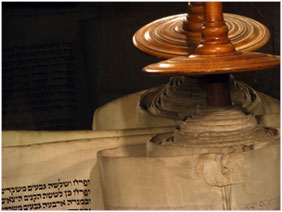
Sunday School Lesson 38: Isaiah 40-49
These chapters begin a new section of Isaiah. The first 39 chapters focused on Judah and Israel before the exile in Babylon: the sin and iniquity of Judah and Israel. This section, chapters 40-56, focuses on Judah and Israel during the exile: the promise of return. And the last chapters, 57-66, will focus on Judah…
-
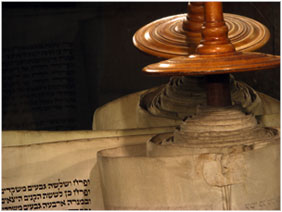
Sunday School Lesson 37: Isaiah 22, 23, 24-26, 27, 28-30
Chapters 23 and 27 are not assigned for the lesson. Nevertheless, I have included them because I will refer to them. This week, rather than giving a list of questions to answer, I will suggest some exercises in reading that seem to me to be particularly appropriate to reading Isaiah, exercises in understanding in terms…
-

Sunday School Lesson 36: Isaiah 1-6
Scriptural Background The Savior tells us, “great are the words of Isaiah” (3 Nephi 23:1), and he commands us to search them diligently. (Towards the end of Book of Mormon history, Mormon repeats that command: Mormon 8:23.) Nephi tells us that his soul delights in Isaiah (2 Nephi 11:2), but he also tells us that…
-

Sunday School Lesson 35: Amos 3, 7-9; Joel 2-3
Note to newcomers: These are not lesson notes. They are notes–and questions–to help people study the lesson material. Of course, as such they may also be helpful for preparing lessons, but that isn’t their primary purpose. Amos Though Amos is a short book, it can be difficult to make sense of it. Amos seems to…
-
Sunday School Lesson 34: Hosea 1-3; 11; 13-14
The book of Hosea is an excellent example of a book that we often find difficult because we don’t understand “the manner of prophesying among the Jews” (2 Nephi 25.1). One of the most important of those ways of prophesying was the use of types and shadows. (See Romans 5:14; Colossians 2:17; Hebrews 8:5, 9:9…
-

Sunday School Lesson 33: Jonah 1-4: Micah 2, 4-7
This is another long set of study notes. I have adapted parts of them from a set of notes that Arthur Bassett made several years ago—but don’t hold Art responsible for any mistakes you see here. They are probably mine. I will provide study notes for both sets of readings, that from Jonah and that…
-

Sunday School Lesson 32: Job
Word Biblical Commentary quotes this very nice poem from W. H. Auden, “Thomas Epilogises”: Where Job squats awkwardly upon his ashpit, Alone on his denuded battlefield, Scraping himself with blunted Occam Razors He sharpened once to shave the Absolute . . . Eliphaz, Zophar, Bildad rise together, Begin to creak a wooden sarabande; “Glory…
-

Sunday School Lesson 31: Proverbs and Ecclesiastes
I laughed when I saw what this lesson covers, “only” slightly less than 16,000 words in Proverbs and slightly more than 23,000 words in Ecclesiastes. If we have the full 40 minutes, that means we should try to cover the content of about 1,000 words per minute (assuming that we don’t have opening or closing…
-
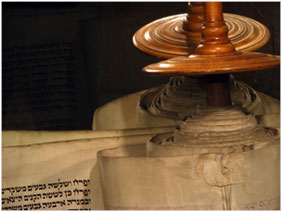
Sunday School Lesson 30: 2 Chronicles 29-30; 32; 34
As the Old Testament tells the history, Hezekiah was the 13th king after David and the 11th king of Judah: David, then Solomon, then Rehoboam (who was king at the time of the split between Judah and Israel, and became the first king of Judah), then Abijah, then Asa, then Jehoshaphat, Joram, Ahaziah, Joash, Amaziah,…
-

Sunday School Lesson 29: 2 Kngs 2, 5-6
A reminder: these are not notes for preparing a Sunday School lesson—though they may help a person do that. They are notes for studying the chapters assigned for reading. Arthur Bassett has pointed out these parallels between Elisha, on the one hand, and Moses and Christ, on the other. (All scripture references are to 2…
-

Sunday School Lesson 28:1 Kings 17-19
Elijah We know from passages in the New Testament and, especially, from Latter-day revelation, that Elijah is one of the most important prophets to have lived. (In the Jewish tradition, he is second only to Moses.) Yet we know almost nothing about him. Why do you think that is? In addition to the story of…
-

Sunday School Lesson 27: 1 Kings 12-14; 2 Chronicles 17, 20
The material of this lesson, especially that of chapters 12-13, is important to understanding the rest of Old Testament, for the eighty years that it covers details the split that occurred between the ten tribes of Israel in the north and the tribe of Judah/Benjamin in the south. Since these accounts, like the rest of…
-
Sunday School Lesson 26: 1 Kings 3; 5-11
The Story This week’s lesson focuses on the construction of the first temple. Previously there had been many places for offering sacrifices and several buildings that we would call temples. But this is the first one built on the site traditionally associated with Abraham’s sacrifice of Isaac. As this temple came to prominence, it overshadowed…
-
A Mormon Image: Cemetery in Carrol County
After retirement, my father turned to family history and temple work to fill his time. Most of this work has focused on researching ancestors from Virginia and North Carolina. I took this photo at a cemetery in Carrol County, VA, near the the birthplace of my father’s grandparents. My father is shown in the picture. …
-

How to write a revelation
I have been working on a paper looking at the Doctrine and Covenants, and my research has me thinking about how the texts of modern revelation were produced. I think that there are a lot of Mormons who assume that the words of the revelations in the Doctrine and Covenants were dictated word for word…
-
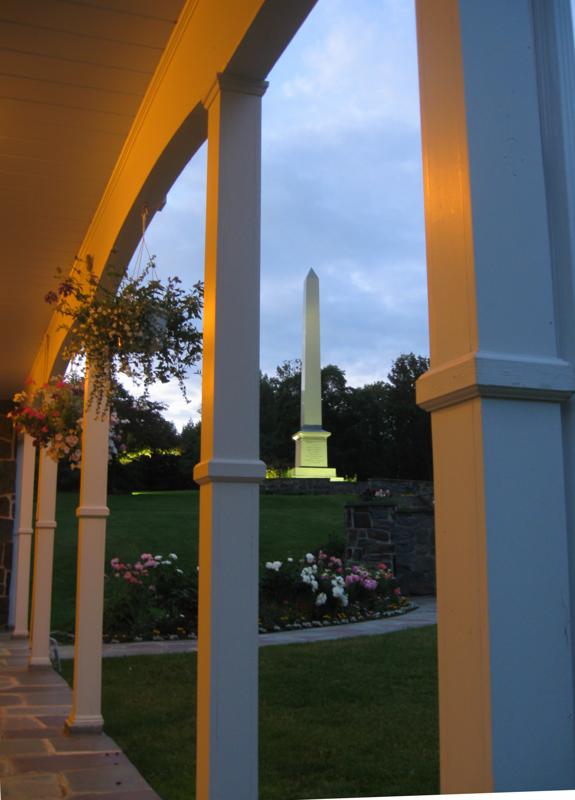
A Mormon Image: Joseph’s Birthplace Memorial At Dusk
“I was born in the year of our Lord one thousand eight hundred and five, on the twenty-third day of December, in the town of Sharon, Windsor county, State of Vermont.” Joseph Smith History 1:3 By Gary Boatright Jr. ___ This picture is part of our ongoing series highlighting Mormon images. Comments to the post…
-

Sunday School Lesson 25: Psalms
I’m going to skip my usual whine about how much material is covered in the reading for this lesson (unless announcing that I won’t whine counts as a whine). Overview One traditional division of the book of Psalms—often called “the psalter”—divides it into five sections, on analogy with the five books of Moses: Psalms 1-41,…
